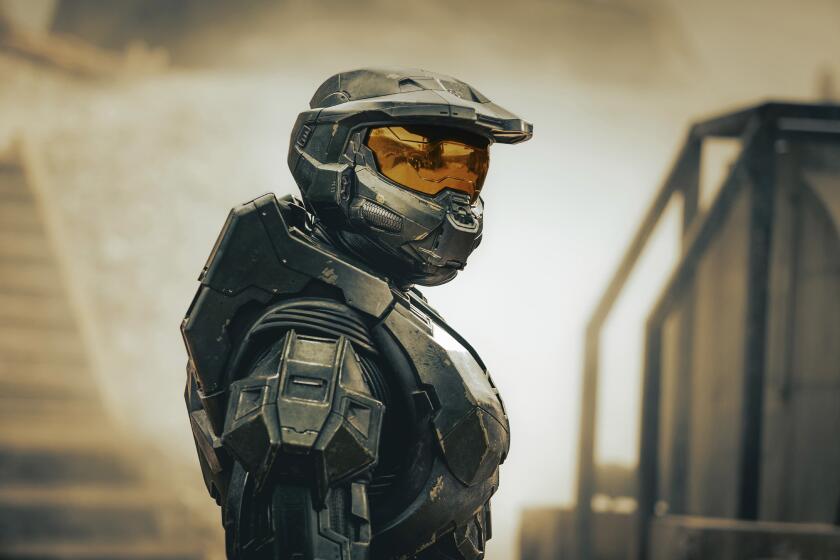Re-creating ‘Halo’s’ gameplay presented a problem. Here’s how the TV show solved it
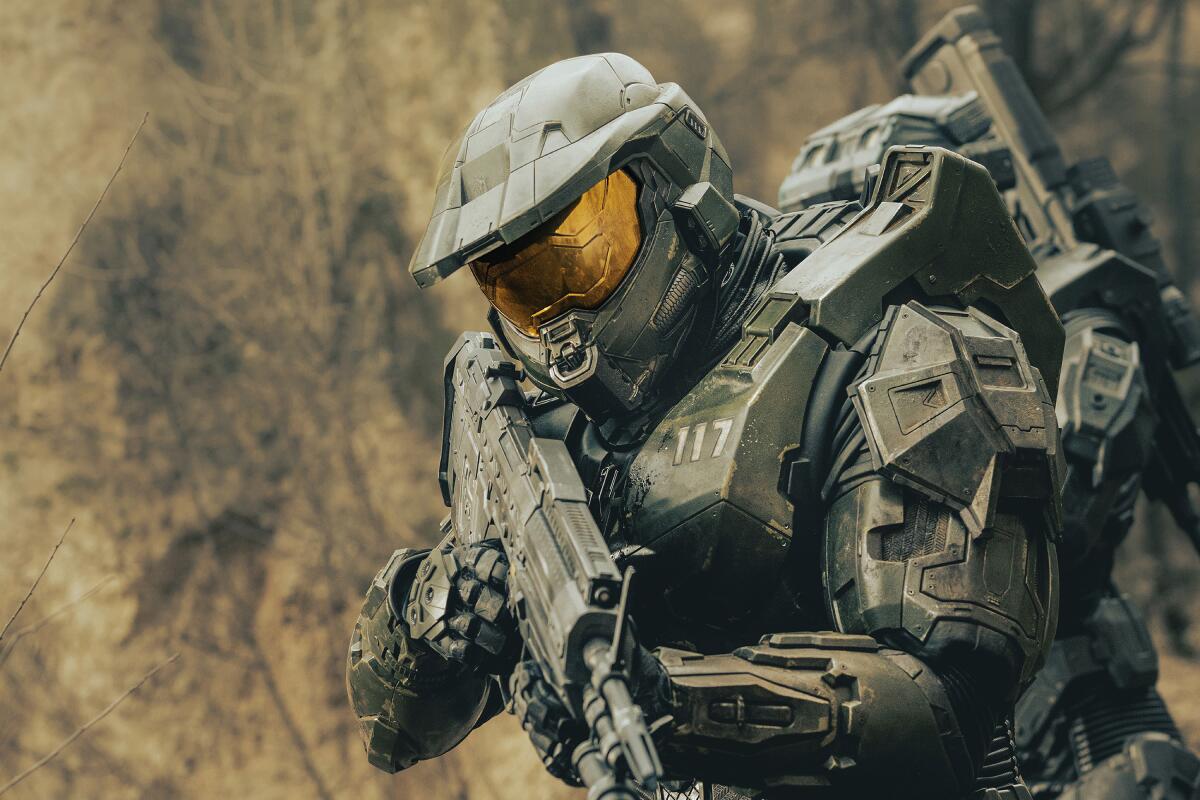
- Share via
Toward the end of the first episode of “Halo,” Master Chief — the commander of a squad of scientifically enhanced soldiers known as Spartans — is held at rifle point by Kwan, a teenage captive who has just lost everything.
The weapon poses no threat against the high-tech armor protecting the interstellar super soldier. But after turning to face Kwan (Yerin Ha), who is understandably confused and concerned about her safety and future, Master Chief (Pablo Schreiber) takes off his helmet.
It’s a moment that’s been more than 20 years in the making.
There’s a long history of video game adaptations that walk the line between the dedicated and the uninitiated. For ‘Halo,’ this is the wrong ambition.
Based on the long-running video game franchise, “Halo,” which premiered Thursday on Paramount+, is a sci-fi-infused fantasy drama set in a future where humanity is at war with itself as well as a coalition of aliens known as the Covenant.
Master Chief, also known as John-117 (or just John), has been the helmeted face of the franchise since his introduction as the playable character in the first “Halo” game, 2001’s “Halo: Combat Evolved.” The TV series’ premiere is the first time any incarnation of Master Chief is seen removing his helmet on screen.
“For some people, this has been a moment they’ve been waiting for 20 years to happen,” said executive producer Kiki Wolfkill, who oversees “Halo” transmedia for 343 Industries. “For other people, it’s a moment they believe should never happen because part of the game experience is you inhabiting that character.”
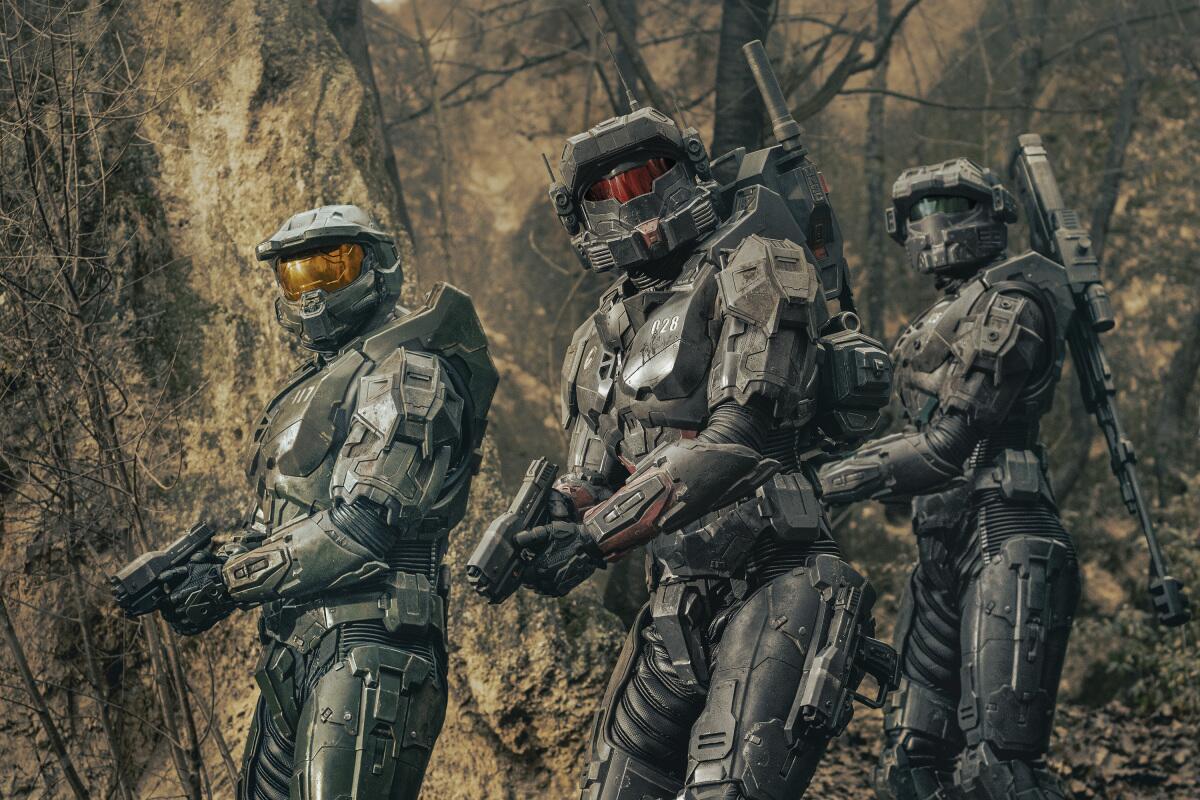
The moment is narratively significant in the developing dynamic between Master Chief and Kwan, and it also signals some of the storytelling priorities that distinguish a television show from a first-person shooter video game.
“With the games, we ask people to participate in the story and to inhabit the character, which is part of what makes it so magical,” said Wolfkill. “The character of Master Chief [in the game] is … someone who you feel invested in as sort of being part-owner of — Master Chief is partially you.”
But television shows, for the most part, are not interactive — especially to the degree of games like “Halo.” So the challenge of the series is to create a compelling enough story for an audience of observers through the characters, events and the world itself.
The space opera fantasy returns in ‘Halo Infinite’ with Master Chief, a grappling hook, cheesy dialogue and a gorgeous vast world that’s pulpy and timeless.
“In the game, everything is designed to optimize gameplay,” said executive producer Steven Kane, who developed the series with Kyle Killen. “You can get away with things that you can’t get away with in live action because you’re first-person.”
Although he was already familiar with the “Halo” video games, Kane was not as well versed in the expansive lore that has evolved around the franchise. Although this series marks “Halo’s” first foray into live-action television, the franchise spans two trilogies of core games as well as prequels and spin-off games, novels and other adaptations.
After diving into “Halo” lore — as well as discussion about its core ethos — one of the challenges for the show’s creative team became choosing what story to tell in the series, whose audience will ideally include franchise newcomers as well as fans. Another was figuring out how to “translate a first-person shooter game into [a show about] a character that’s three-dimensional.”
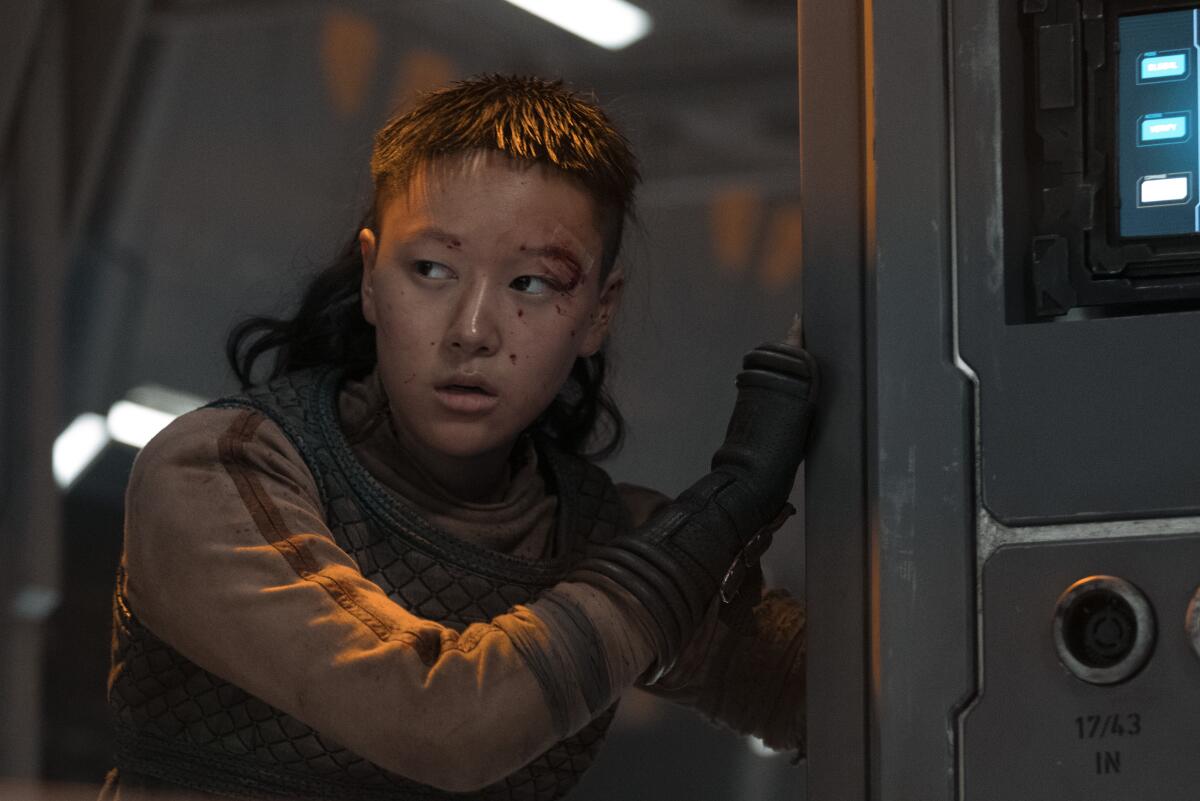
“Halo’s” Master Chief comes with a peculiar hurdle: Everyone who has played a “Halo” game is already invested in their own version of Master Chief that the games allow them to embrace.
“We took that challenge and made that the core of the first season,” said Kane. “Who is Master Chief? [The show] is really about John, Master Chief, 117, himself discovering who he is … [and] discovering his own humanity.”
The decision to unmask Master Chief was not taken lightly. But “it was really clear that if we’re going to take the Master Chief — John — on a journey, it was really important to be able to see John and see him out of the armor,” Wolfkill said.
This shift away from the game’s first-person perspective also gives the show the opportunity to focus on characters and introduce places that haven’t been explored in the games.
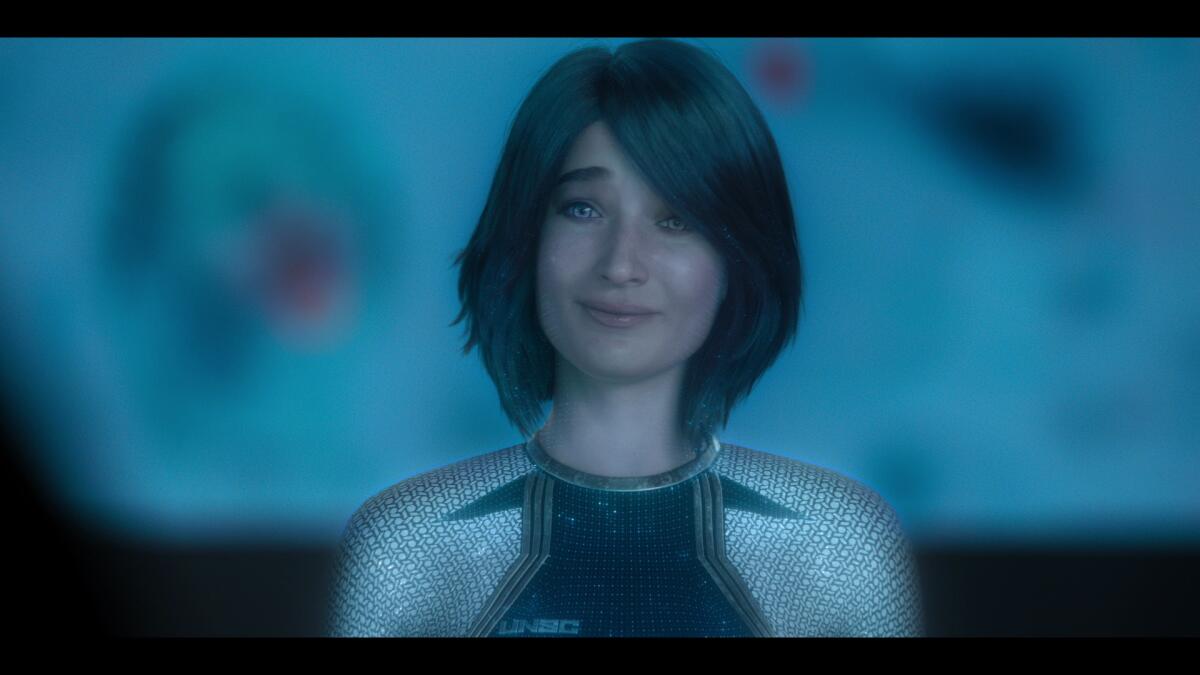
Take Cortana (Jen Taylor), the A.I. character who in the games assists Master Chief and helps guide players through missions. In the series, audiences will see the creation of Cortana and will be introduced to her and John’s complicated dynamic from the beginnings of their relationship.
Outside of core game characters, the series also follows Kwan, whose father was helping to lead their planet’s rebellion against the United Nations Space Command (the military and scientific arm of a central interplanetary human government).
“Contrary to what the UNSC want you to believe, the Spartans are complicated,” said Kane. “The Spartans were actually created to quell human insurrection, and then they took on the Covenant. Thank God they were there when the Covenant arrived, but their history is complicated and morally ambiguous at best. And Kwan gives us that point of view into the Spartans.”
Kwan allows the show to question elements of the world that players don’t necessarily have to confront when playing as a soldier making their way through missions. It’s a nuance only possible by expanding the story to show more civilian life and viewpoints outside of the United Nations Space Command.
“With a game, gameplay is king,” said Wolfkill. “The story is meant to support the gameplay experience. But with television, story is king. All other decisions are driven by the story.”
More to Read
The complete guide to home viewing
Get Screen Gab for everything about the TV shows and streaming movies everyone’s talking about.
You may occasionally receive promotional content from the Los Angeles Times.
